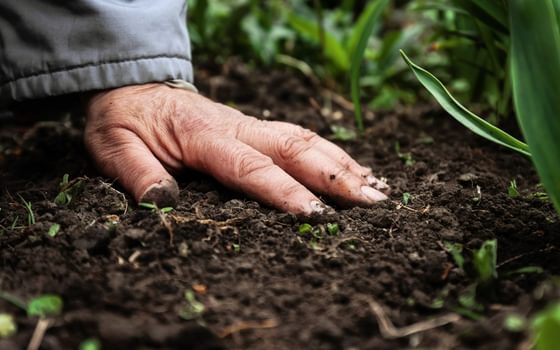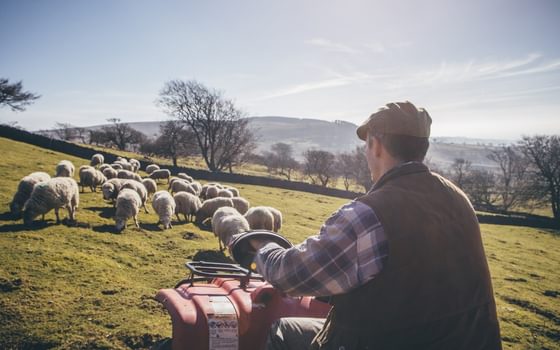Fisheries White Paper: who is this for?
Our response to the government's plan
04 July 2018
Fishing communities we have been speaking to from Skye to Dorset are anxious that Brexit promised a great deal but is threatening to deliver very little. Today’s surprise release of the Fisheries White Paper aims to set a course for a new fishing future, but already there are concerns. As fun as surprises are, you have to ask who the paper is for?
The timing of the release, especially given that leaked versions of the White Paper have been circulating for months, has of course been planned. Is it determined by Chequers and internal power plays? Has its release been timed to strengthen the hand in the EU negotiations? Whatever the calculation, rather than set a clear policy steer, the document is peppered with terms like ‘seek to’, ‘intend to’, ‘will consider’, ‘could include’, ‘aim to’ and the classic, “Defra intend to begin a conversation…”
It is incredibly dangerous to make all policy change conditional on certain Brexit outcomes. Unless there is urgent action to rectify the existing UK quota allocation, any post-Brexit tweaks to quota will be worthless to those small-scale fishers who have already gone bust.
It is incredibly dangerous to make all policy change conditional on certain Brexit outcomes.
The elephant in the room is that Brexit negotiations are not a done deal – not even close. As the White Paper says, “we do not yet know the outcome of the UK’s negotiations to withdraw from the EU or on a future economic partnership.” Even in fisheries, the UK position isn’t clear. The government’s press release suggests that we want access to EU waters post-Brexit and that any access arrangements would be reciprocal. Although trade comes up a lot in the White Paper, there is nothing specific in terms of what’s going to happen, and often it just talks about the “deep and special partnership with the EU” that we are yet to forge. It states that access to markets (a really fundamental part of the issue) “will be agreed as part of our future partnership [with the EU]”. So, we still don’t actually know anything of consequence, beyond the obvious: “In 2016, the UK exported £1.17 billion of seafood to the EU, and imported £1.04 billion from the EU” and “both the EU and UK have an interest in continued trade for the fisheries and wider seafood sector.”
The government’s position seems to be to highlight the opportunities and downplay the risks.
This may be a good communication strategy but as our report shows, there are real risks. And these risks are putting livelihoods in jeopardy, as we have been hearing from ports around the UK. It’s like approaching a cost-benefit analysis without looking at costs.
Two months ago we called for four things to be in the White Paper. So how does it measure up?
The government’s position seems to be to highlight the opportunities and downplay the risks.
There are some positives: first off a commitment to running cost recovery trials (which we have been advocating for some time) so that the beneficiaries of good fisheries management also contribute to the costs. Also re-evaluating the definition of ‘small-scale’ fishing, beyond the current arbitrary 10 metre cut off point to focus on impact rather than vessel length. Together with a commitment to allocate fishing opportunities using ‘new’ criteria (something NEF has been pushing for years) as a way to incentivise selective, high value fishing with minimal environmental impacts to non-target species or the seabed. But again, it is conditional: “new allocation criteria for any additional quota agreed from December 2020 onwards”. And these could have been put in place years ago as all relate to UK and devolved administration competencies.
There are also missed opportunities. The key promise of more quota for small boats was always within the power of the UK government, not Brussels. It still is, and yet this White Paper specifically states that the existing quota ownership will not be challenged: “We do not intend to change the method for allocating existing quota”. It says, “We recognise that fishermen have invested in FQAs. We will continue to use this methodology for the apportionment of existing quota”. This adherence to the status quo shows that there never really was a ‘Brexit dividend’ on offer for our fishing communities, and that despite the rhetoric of fisheries being a ‘public resource’, the privatised approached to UK fishing quota will be upheld.
But why this missed opportunity? An oddly transparent clue is in the press release. The two largest federations representing quota holders were quoted, even though this is not standard practice (and certainly not good practice). This suggests that their role in shaping the White Paper was disproportionate to who they represent (in terms of vessel numbers, fishermen, where they fish, what species they fish for and where that fish goes.) Small scale fishers (who make up three quarters of the fishing fleet but don’t get a voice) and NGOs are not quoted at all. Importantly, neither are the devolved administrations.
Small scale fishers (who make up three quarters of the fishing fleet but don’t get a voice) and NGOs are not quoted at all.
Even the larger vessels, who are well represented by lobbyists and could benefit from Brexit, will not be in a mood to compromise on anything given it is still unclear if there will be any change to access arrangements within our territorial waters, what will happen regarding tariffs and trade, or how long the transition deal will last. See the quote by Bertie Armstrong of the Scottish Fishing Federation: “Of course, there is a long way to go, and we now need our governments to show real backbone in the Brexit negotiations to ensure that these aspirations become reality.”
We have been around the coast listening to fishermen in Orkney, Skye, Poole and Eastbourne who do not feel represented by either the Scottish Fishing Federation or the National Federation of Fishermen’s Organisations. We know from talking to fishermen around the country that the key thing they want is a fairer quota system, and a balanced management regime which means inshore areas are off limits to larger mobile gear operators to give smaller boats a chance and put low impact gears first. We need a fair and sustainable future for coastal communities, and we will only get that if we listen to them.
Campaigns Fair, sustainable fishing
Topics Fisheries & farming






